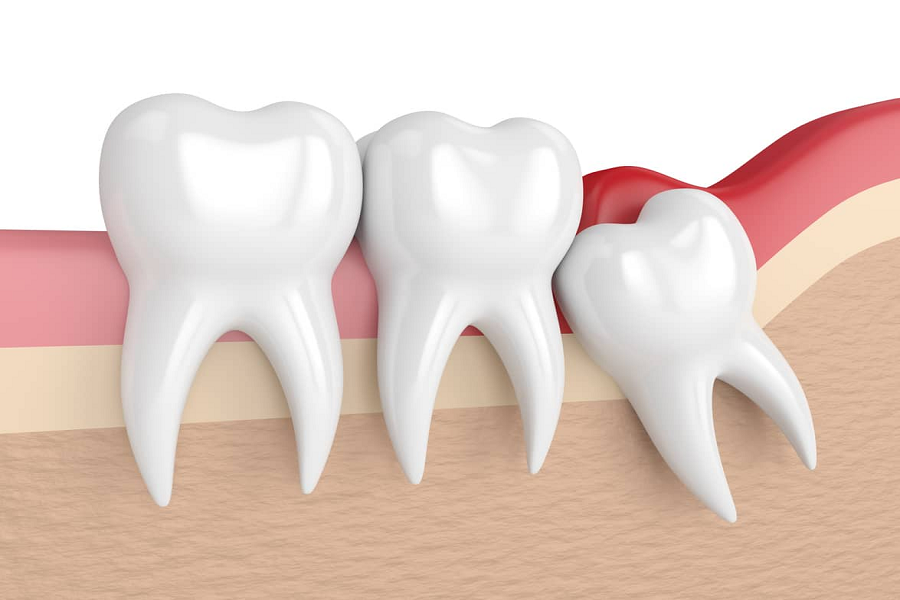In dental books, non-erupting third molars are called “impacted wisdom teeth.” They reside in the back of the upper and lower jaws and are the last teeth to erupt. Wisdom teeth typically erupt between the ages of 17 and 25, but some individuals have had eruptions in their 40s and 50s. This is why these teeth are nicknamed wisdom teeth because they appear during the “age of wisdom” period of life.
Furthermore, they are molars that lack sufficient space to develop or erupt correctly. It can cause discomfort, damage to other teeth, and further dental issues. Sometimes, wisdom teeth that are impacted do not create any immediate or evident complications. As they are harder to clean, they are more susceptible to gum disease and tooth decay than other teeth.
Nevertheless, wisdom tooth impaction symptoms may not always occur. If an impacted tooth damages adjacent teeth or causes additional complications, headaches, nausea, and vomiting may be present. Other indicators include:
- enlargement of jaw
- render or bleeding gums
- poor breath
- the unpleasant flavor on the tongue
- severe jaw ache
- trouble moving your mouth
- severe dental caries
- harm to adjacent teeth
Most wisdom teeth that cause discomfort or other dental issues should be extracted. Some dentists and orthodontists may recommend the extraction of an impacted wisdom tooth to prevent future harm to adjacent teeth. If the third molar rubs against the second one, the risk of infection increases. This pressure can potentially result in teeth crowding problems requiring orthodontic treatment.
In addition, many dentists believe it is preferable to remove wisdom teeth earlier before the roots or bone have fully developed and when recovery is typically quicker. Therefore, many young adults choose to have their wisdom teeth extracted before the onset of complications.
Following the excision of your wisdom teeth, you must take antibiotics or pain medication. During this period, you should also avoid consuming alcohol, smoking, and foods that are firm or sticky. These general guidelines will make your rehabilitation as painless as possible.
Regular six-monthly dental appointments for cleanings and online dental consultations allow your dentist to monitor the growth of your wisdom teeth, which you cannot prevent. Regularly updated dental X-rays can detect impacted wisdom teeth before the onset of symptoms.
For more information, visit Simply Silver Mouthwash’s website.


